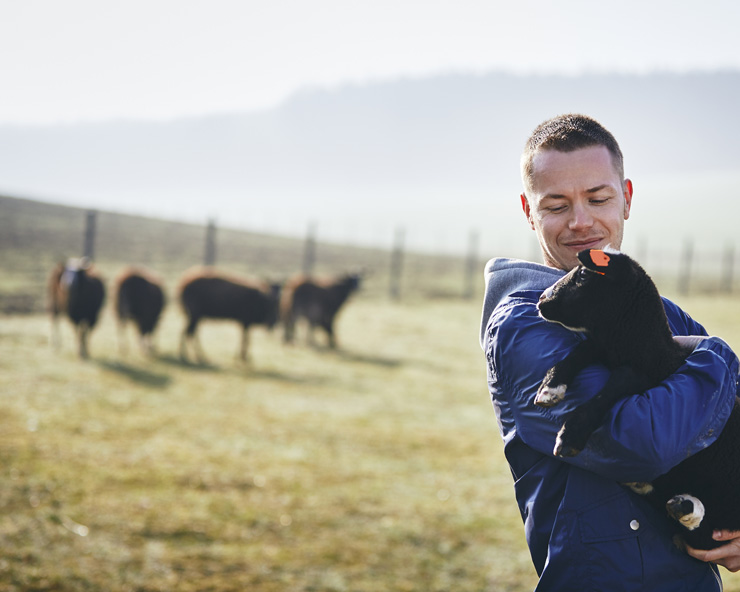Animals can be exposed to diseases due to various factors and agents. Diseases can be spread from animal to animal, to and from humans, and from the environment. Diseases that can spread between animals and humans are called zoonotic diseases.
Regardless of the source of the disease, there are many ways the disease can spread. It is important to avoid the spread of disease to your herd. Taking biosecurity and preventive measures will help prevent disease spread. Using safety measures, you can reduce the risk of many illnesses on your farm or ranch.
Sanitation
When working around animals, anything can carry disease if it’s not cleaned properly, yourself included. It’s important to recognize all the items that have come in contact with sick animals, including animals from another herd.
This includes:
- Trailers
- Feeding equipment
- Clothing
- Humans
Make sure you clean these items carefully. Good sanitation can have a huge impact on your herd’s health.
By properly removing and storing feces, you can protect your herd. Feces provides a home to many different pathogens, dangerous to animals and humans. Keeping manure away from livestock, feed, and areas used for crops can help stop the spread of infection. Using a manure container can prevent manure run-off, polluting groundwater and other areas that can contact your herd.
Separation and containment
It is important to understand the risks of adding new animals to your herd. The history of an animal is valuable because it may tell you what that animal has been exposed to. By separating new animals for 2-4 weeks, you can reduce the risk to your existing herd. Having your veterinarian perform a health check is also valuable.
Keeping a close eye on illness in your herd can prevent further spread. When signs of problems are spotted, separate the ill animals to prevent further spread. Isolation can protect your herd from the spread of disease and outbreaks. The isolated area should be away from other animals and have separate feed and equipment. Clean feed equipment after contact with feed or the animals.
As organic and alternative producers, we often produce our feed, allowing more control. If a feed is bought for your herd, using a reliable source for your feed and forage is important to animal health. Feed contamination can come from various sources, such as impure ingredients or small animal or pest contact. If not stored properly at the feed source or your farm, birds and rodents could spread disease to your feed which is then passed to your herd.
Movement controls
Moving animals can increase the risk of introducing or spreading a disease. When transporting animals, you should clean hauling equipment such as trailers. When moving animals on foot, avoid areas where your herd may encounter the feces of other animals. Avoid contact with other animals, whether livestock or wild animals, to prevent disease spread.
The movement of people and vehicles also brings increased risk. When you have people visiting or touring your farm, try to avoid them having physical contact with your animals. They can unintentionally bring diseases. Vehicles can also bring diseases onto your farm, so avoid having non-farm vehicles near animal enclosures.
Implement an on-farm disease prevention plan
Along with maintaining preventative measures, it is important to have a plan in case of an emergency. This plan will help you use disease prevention practices and protect your animals daily. In case of an outbreak, you will also be better prepared. While it might not completely stop disease spread, it may make containment easier and help you respond quicker. Working with your veterinarian or animal health professional to develop this plan can help. It is also important to update and review existing plans every year. By preparing this plan, you can protect your animal’s health and the future of your herd.
More Resources:
Disease prevention plan template for organic/alternative farms
APHIS-Biosecurity in Small-scale U.S. Livestock Operations

